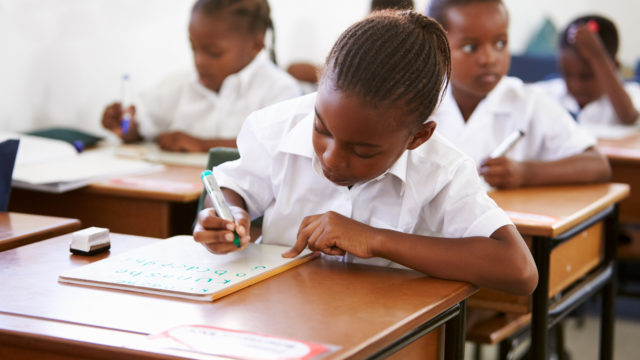For all the talk of tertiary education institutes being reservoirs of research, in Nigeria at least, these institutes are severely criticised for both the production and reproduction of fake knowledge. There has been an emphatic call for genuine and real-world research in Nigerian academia because it is realised that in the age of the knowledge economy it boosts a country’s socio-economic well-being, besides contributing to the development of healthy social attitudes.
There is no doubt that the country’s tertiary institutes of higher learning need to produce credible knowledge that prompts innovation and encourages minds to thrive. This knowledge will enable individuals to ask questions and inspires critical, out-of-the-box thinking. Tertiary education institutes in Nigeria, however, lack these characteristics, and hence do not meet 21st-century challenges regarding innovation and new knowledge.
In fact, the response to these challenges so far smacks of poor awareness about the education ecosystem that comprises integration and interdependence in all levels and components of education. This may include, for example, the interplay between basic and higher education learning design, instruction and assessment. Such lack of awareness limits the scope of solutions and their effectiveness.
Nigerian tertiary institutions need to encourage academic contributions by giving scholarships, upholding ethical standards and holding unscrupulous academicians accountable, as well as putting more money into research grants. However, for all this, the education policy needs to focus on early education, the building block on which rests the foundation of a strong higher education system with the capacity to absorb all those qualified to meet the challenges of research work and knowledge production.
Giving scholarships for higher studies alone may not lead to knowledge production and, as is evident, has not always added value to these institutes’ intellectual capital. The perception and experience of ‘scholarship,’ for example, has been degraded and is now associated with merely attaining a degree. It does not reflect the thirst for knowledge that is required to understand real-world problems through the formation of well-thought-out, rational and diverse opinions. Generating ‘knowledge’ as a means of boosting academic standing has, sadly, led to the theft of knowledge and fake research studies, affecting all levels of scholarship — discovery, integration, application and service.
The set criteria of selection for scholarships, for example, stems from exam grades. This is by no means productive as exams are merely a measure of what we can call the ‘paper-pencil’ capability of learners. We also tend to ignore examination malpractices such as cheating. Grades, even if achieved on grounds of merit, may not reflect a learner’s intellectual standing, questioning capabilities, or critical and innovative thinking.
The solution lies in reorienting the primary and secondary education system so that there is a cascading effect on the quality of higher education institutes. At the primary and secondary levels, asking questions and analysing content must be encouraged among students so that the fear of being wrong is removed. Discipline and corporal punishment have no place in a class environment and they must be replaced with appreciation for asking questions. The curriculum needs to focus on life as it is, and changes in pedagogical methods must reflect that, for instance by giving precedence to project work rather than just learning from given texts. Simultaneously, memory-based exams need to be replaced with stimulating and creative forms of assessment which actually help build intellectual capital.
Our policymakers, curriculum planners and educational leaders should refocus their energies on questioning skills and coherent thinking among these young minds to help them prepare for a higher education system which puts premium on scientific thinking and strong research skills.
With such measures at the school level, even if students are unable to enrol at higher education institutes later, they would at least have developed, by the time the get to the mid management cadre, more rational and critical thinking skills which would overcome irrational or superstitious attitudes that seem to prevail at the moment. Blindly following and not questioning are attitudes that reflect poorly on human dignity.
In sum, incorporating critical and coherent thinking even at the basic levels of education to prepare young students for the rigours of intellectual demand at universities is the need of the hour. Better quality of education at the primary and secondary levels is more likely to ingrain analytical thinking that can eventually develop into true scholarship thus equipping students with the intellectual capital needed to find solutions in an increasingly challenging global environment.





